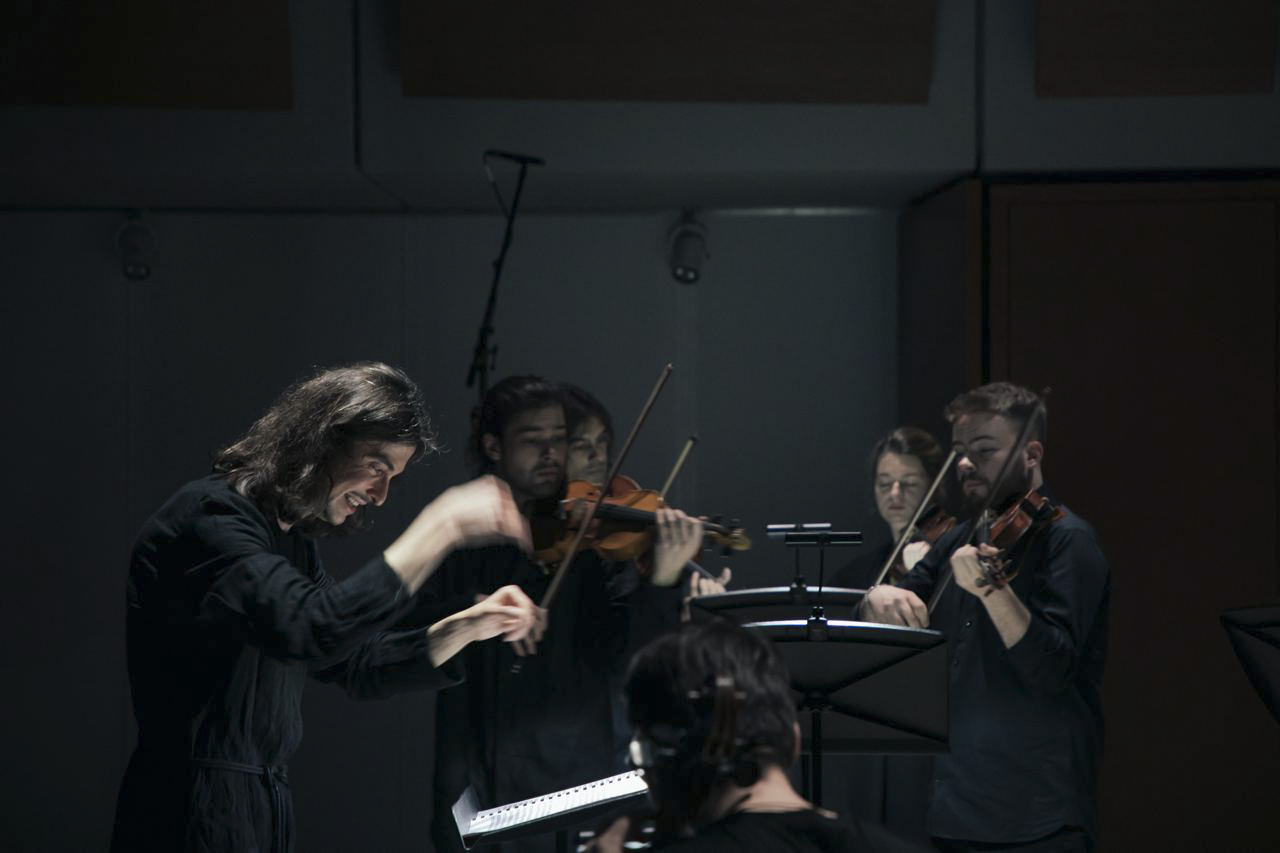Beethoven: First and Seventh Symphonies. Questa Musica, Philipp Chizhevsky
Two masterpieces of the orchestral repertoire of the nineteenth century—Ludwig van Beethoven’s First and Seventh Symphonies.
Philipp Chizhevsky is a leading Russian performer of Baroque and Classical music. This month, together with his ensemble, Questa Musica, the conductor returns to

Beethoven’s First Symphony premiered in Vienna on the 2nd of April, 1800, and marked the musical opening of the nineteenth century. It would go down in history as a work with a "double bottom"—on the one hand, Beethoven swears allegiance to the ideals of his predecessors, Haydn and Mozart, on the other, he clearly recognises that his music speaks for an utterly new epoch—it is not for nothing that the First Symphony opens with a dissonant chord that challenges the music of the past. The music historian Larissa Kirillina describes the place of this symphony in the history of art as follows: "Despite its external impeccability of form, the First Symphony is a long way from being a child of the ‘old regime.’ By many of its outward signs, the Symphony certainly seemed to belong to the tradition of the eighteenth century, but in as far as this belonging was a position consciously chosen by the composer, it already contained within itself a moment of reflection, criticism, irony or self-irony—that is, a distancing from a still living, loved, but inevitably fading epoch."
The evolution of Beethoven’s style is particularly observable in the Seventh Symphony, which was first performed in Vienna in 1813. Working with the same compact concert orchestra typical of the Classical period as he had done for the First, in his Seventh Symphony, Beethoven constructed an utterly different form in terms of musical architecture—magnificent, large-scale, with an amazing brightness and dynamism. The Seventh’s Dionysian finale anticipates the Ninth Symphony and its Ode to Joy, and may have been what Richard Wagner had in mind when he called the "Seventh the apotheosis of dance."
Programme
Ludwig van Beethoven (1770–1827)
Symphony no. 1, op. 21
I. Adagio molto — Allegro con brio
II. Andante cantabile con moto
III. Menuetto: Allegro molto e vivace
IV. Adagio — Allegro molto e vivace
Symphony no. 7, op. 92
I. Poco sostenuto. Vivace
II. Allegretto
III. Presto
IV. Allegro con brio
Performed by
Questa Musica was founded in 2008 by Philip Chizhevsky. The ensemble’s repertoire runs through compositions of the Renaissance and Baroque periods to works by contemporary Russian and foreign composers. Questa Musica regularly performs in Russia and the rest of the world. The ensemble frequently participates in opera and drama productions, notably Sergei Nevsky’s Francis on the New Stage of the Bolshoi Theatre for the Opergruppa creative association (2012), Passion according to Nicodemus by Alexander Manotskov for the "Platform" project (2013), Sverlians (2015) and Galileo (2017) at the Stanislavsky Electrotheatre, and Handel’s The Triumph of Time and Insensibility, staged by Konstantin Bogomolov at the Moscow Art Theatre (2018).
Philip Chizhevsky (1984, Moscow) is a graduate of the Moscow State Tchaikovsky Conservatory, where he studied Choral Conducting under Stanislav Kalinin and Opera and Symphony Conducting under Valery Polyansky. In 2011, Chizhevsky began teaching at the Moscow State Tchaikovsky Conservatory, and became a conductor at the State Symphony Capella of Russia (artistic director: Valery Polyansky). In 2012, Chizhevsky made his debut at the Bolshoi Theatre of Russia with Francis by Sergei Nevsky (2012). In 2014, he was made guest conductor of the Bolshoi Theatre of Russia, where he would go on to release the premiere of Pericola by Jacques Offenbach in 2019. In addition to productions with the Questa Musica ensemble, Chizhevsky’s works include Carmen by Georges Bizet at the Perm Opera and Ballet Theatre (2021), Diary of Anne Frank by Grigory Frid and The White Rose by Udo Zimmermann (Bolshoi Theatre, 2021). Chizhevsky received the Golden Mask National Theatre Prize for "Best Conductor" in 2019 and was nominated for the BraVo International Music Awards "Opera of the Year" for his work on the production of The Triumph of Time and Insensibility.